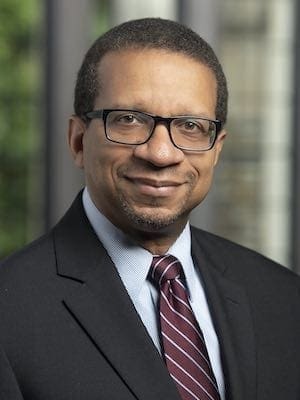The U.S. Civil War began 150 years ago, on April 12, 1861, when the first mortar round was fired on Fort Sumter, S.C. By the end of the Civil War in 1865, more than 600,000 soldiers had died, and the United States experienced a defining point.
The Civil War, however, did not occur in a vacuum. It was part of an unavoidable crisis born out of the horrors of chattel slavery that destroyed the lives of innumerable Africans and devastated the lives of countless Africans in America and their descendants.
The unequal access to education, the imbalance of employment and economic success, and the disproportionate rate of arrest and incarceration of people of color are all contemporary outcomes of the racism that gave birth to slavery, the Civil War and subsequent expressions of oppression and discrimination.
African-American Christianity emerged from the crucible of chattel slavery, American evangelicalism and African traditional religious expressions. Christians of African-American heritage have deep resources of faith on which to draw both to survive and to thrive; these resources are helpful to people of various cultural backgrounds.
The words of Rev. Lott Carey, whose life and legacy inspired the naming of the Lott Carey Foreign Mission Convention – one vibrant expression of faith born out of the racism that is part of the DNA of the United States – are piercing and tragically still relevant in too many cases.
“I am an African, and in this country, however meritorious my conduct, and respectable my character, I cannot receive the credit due to either,” said Carey. “I wish to go to a country where I shall be estimated by my merits, not by my complexion; and I feel bound to labor for my suffering race.”
Our enslaved ancestors have taught me much over the years. I continue to be inspired by their strength and instructed by their wisdom. The 150th anniversary of the beginning of the Civil War is a good time for us to turn again to the lessons – painful and joyful – of the past.
One resource I commend to you is a book I wrote that was first published 15 years ago, then reissued four years ago. “Were You There?: Godforsakenness in Slave Religion” explores the question, “Where is God when we experience unbearable and undeserved suffering?”
Using slave narratives and spirituals that engage the horrors of violence, exploitation and struggling to hear God in the midst, the book goes on to explore Jesus’ cry of forsakenness from the cross.
This season of remembering the Civil War and of reliving the death and resurrection of our Lord Jesus Christ may be a good time to think on these things.
People in the 21st century continue to face personal, communal and national tragedies that beg the question, “Where is God?”
The terrorist attacks of 9/11, the 2004 Indian Ocean tsunami, the 2005 Hurricane Katrina, the 2010 earthquakes in Haiti and Chile, the 2011 tsunami/earthquake/nuclear disaster in Japan, and the personal tragedies that impact people’s lives continue to provoke the question, “Where is God?”
I continue to affirm that God is with us!
David Emmanuel Goatley is executive secretary-treasurer of the Lott Carey Baptist Foreign Mission Convention.

